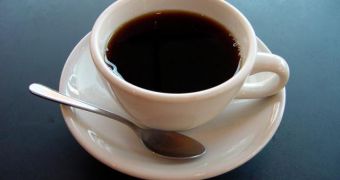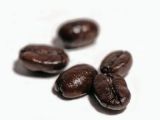When it comes to its health benefits, coffee is one of the most controversial beverages out there. So much has been said about it over the years, so many people have argued pro or against it that ultimately we're all rather confused about which side to take. That's why we're going to talk a little bit about coffee, its beneficial and not so beneficial properties, so that we can all ultimately know where we stand before we decide whether we're going to continue drinking it or do out best to cut our caffeine-gorging habits forever.
Why coffee is good for us
Let's start with the good stuff. Coffee is extremely rich in disease-ravaging antioxidants called quinines (which become stronger after roasting), so much so in fact, that it has been proven to not only give athletes a boost in their performances, but also relieve headaches, improve moods and reduce the risk of cirrhosis, liver cancer, type 2 diabetes and Parkinson's. "Overall, the research shows that coffee is far more healthful than it is harmful", states Tomas DePaulis, a research scientist at Vanderbilt University's Institute for Coffee Studies interviewed by WebMD, who also added that "for most people, very little bad comes from drinking it, but a lot of good".
Coffee also contains an antibacterial substance called trigonelline, which is responsible for its wonderful flavor and can also, believe it or not, help prevent tooth decay. Caffeine is also an important ingredient, which research has shown helps prevent or delay the appearance of cancer; it also relieves head pain, helps fight fatigue and boosts athletic performance.
The studies have also shown that regular coffee consumption cuts back the risk of Parkinson's disease by an impressive 80%, the risk of getting gallstones by 50% and the risk of colon cancer by 25%. Another interesting thing is that studies into liver cancer and diabetes have shown that there's no restriction on the amount of coffee we'd need to drink in order to reap the most of the benefits associated with drinking the refreshing beverage; in other words, the more of it we drink, the better.
The bad stuff
Now we get to the negative parts. First of all, caffeine is a drug and it cannot replace a healthy diet or a good night's sleep. As it's the case with any drug, it can be abused. Tolerance to caffeine is different in every one of us and we should all be aware of how much of the good stuff we can ingest before getting the nasty side-effects - among which nervousness, rapid heartbeat, palpitations, sleeplessness and irritability, and also more serious, long-term side-effects such as osteoporosis or high blood pressure.
Another side-effect of coffee drinking is linked entirely to our modern lifestyle and the virulent attacks of the advertising industry on our perception of what's healthy and what is not. This side-effect is not caused by coffee itself, but rather by our choice to combine coffee with high-calorie extras such as whipped cream, flavored syrups and cream. Such extras can turn a zero-calorie cup of coffee to a whooping 570 calories per cup - more than the calorie count of an entire meal. Below is a list with the calorie contents of some of the most common coffee extras, via WebMD. The key, as you very well see, is moderation, and coffee is perhaps one of the best examples for this rather clich? statement.
Coffee extra calorie count:
■ 2 tablespoons of flavored liquid creamer = 80 calories and 4 g fat. ■ 1 tablespoon of plain liquid nondairy creamer = 25 calories, 2 g fat. ■ 1 tablespoon cream = 50 calories, 6 g fat. ■ 1 tablespoon whipped cream = 90 calories, 9 g fat. ■ A drizzle of Starbucks caramel syrup = 25 calories. ■ 2 tablespoons flavored syrup = 80 calories, no fat. ■ 2 pumps of flavored sugar-free syrup = 0 calories. ■ 2 tablespoons malt = 90 calories, 2 g fat. ■ 1 tablespoon mocha syrup = 25 calories, 5 g fat. ■ 1 tablespoon sugar = 15 calories.

 14 DAY TRIAL //
14 DAY TRIAL // 

